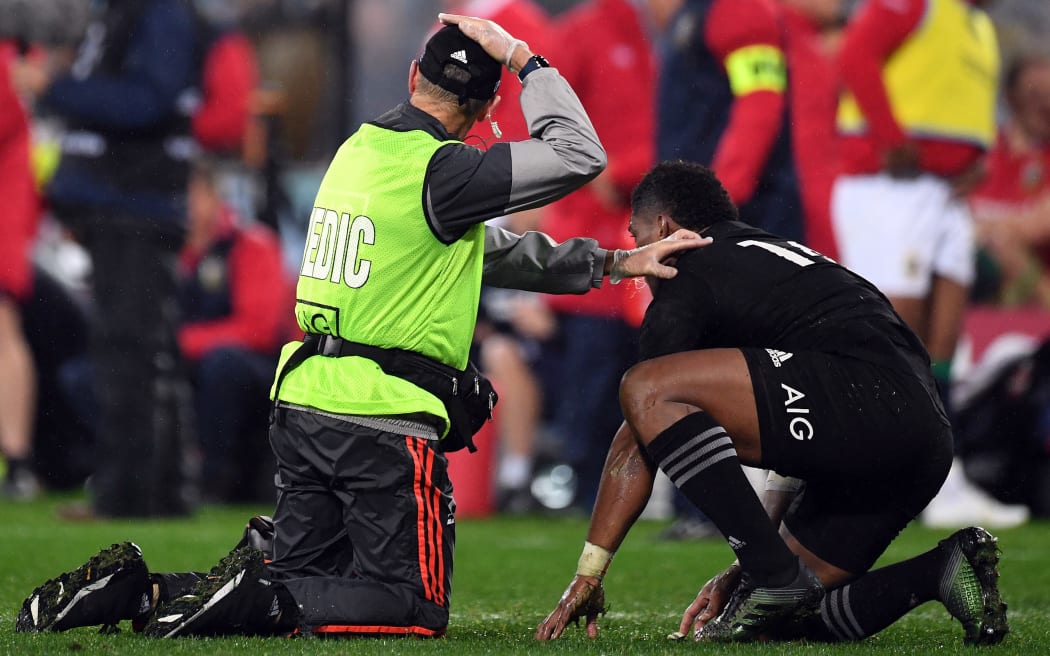Sports
Study Reveals Higher Neurodegenerative Disease Rates in Rugby Players

A significant study led by the University of Auckland has revealed that former high-level male rugby players in New Zealand face a greater risk of neurodegenerative diseases than the general population. Published in the journal Sports Medicine on March 15, 2024, the findings indicate that the risk of developing conditions such as Alzheimer’s and Parkinson’s disease increases with the level of rugby played.
The research, part of Kumanu Tāngata: The Aftermatch Project, aimed to investigate the long-term health and social outcomes for elite male rugby players in New Zealand. Researchers analyzed health records of 12,861 men who played at the provincial level or higher from 1950 to 2000, contrasting their data with that of 2.39 million men from the general population matched by age, ethnicity, and birthplace.
By the end of the follow-up period, approximately 5% of men in the general population had developed a neurodegenerative disease. This figure rose to about 6% for former provincial players and 8% for former international players. Notably, the risk was higher among backline players, those with extended careers, and those who participated in more matches.
The study found no evidence that these conditions manifested earlier in life, with symptoms typically appearing between the ages of 70 and 79.
In light of the findings, Mark Robinson, CEO of New Zealand Rugby (NZR), emphasized the importance of this research in shaping the organization’s player welfare initiatives, particularly concerning brain health and concussion management. He stated, “These results will be concerning for some people. While we can’t change the past, we acknowledge the impact rugby has had on some players and their whānau.”
NZR and the New Zealand Rugby Foundation welcomed the study, viewing it as a crucial step towards enhancing player safety and welfare. The findings provide a solid foundation for continuing efforts to improve player safety, ensuring that all participants are equipped with the information necessary to make informed health decisions.
The release of the study comes shortly after the unexpected death of former rugby player Shane Christie, who passed away at the age of 39. Christie, who had retired in 2017 due to severe post-concussion symptoms, was an advocate for the understanding and prevention of brain injuries in rugby. He had publicly expressed concerns about suffering from chronic traumatic encephalopathy (CTE), a condition associated with repeated head trauma.
NZR expressed condolences following Christie’s passing, stating, “Our thoughts remain with his whānau, friends, and former teammates at this difficult time.” The organization noted that the timing of the research release was coordinated with partners to encourage transparency and foster greater understanding of player safety and wellbeing.
While the study presents robust evidence linking high-level rugby participation to an increased risk of neurodevelopmental disorders, it notably does not include data on women, lower-level players, or individuals whose careers began after 2000. NZR highlighted that the nature of the game has evolved significantly since then, with player welfare now a central focus.
In March 2025, NZR, the NZ Rugby Players Association (NZRPA), and the New Zealand Rugby Foundation launched an enhanced Brain Health and Concussion Risk Management Plan. This initiative includes law changes aimed at reducing high-impact contact, improved Head Injury Assessment (HIA) protocols, and increased access to specialist medical support. Additionally, concussion awareness programs are being implemented across all levels of the sport.
According to Lisa Kingi-Bon, chief executive of the New Zealand Rugby Foundation, the Kumanu Tāngata project reflects a commitment to supporting players beyond their time on the field. “Together, these initiatives aim to strengthen how we support players throughout their journey,” she stated.
As this research marks the first of several studies within the Kumanu Tāngata project, future investigations will explore broader health outcomes and the long-term benefits of participating in rugby. The project has received funding and facilitation support from World Rugby, the New Zealand Rugby Foundation, NZR, Statistics New Zealand, and the University of Auckland Public Policy Institute.
-

 World4 months ago
World4 months agoTest Your Knowledge: Take the Herald’s Afternoon Quiz Today
-

 Sports4 months ago
Sports4 months agoPM Faces Backlash from Fans During Netball Trophy Ceremony
-

 Lifestyle4 months ago
Lifestyle4 months agoDunedin Designers Win Top Award at Hokonui Fashion Event
-

 Entertainment5 months ago
Entertainment5 months agoExperience the Excitement of ‘Chief of War’ in Oʻahu
-

 Sports4 months ago
Sports4 months agoLiam Lawson Launches New Era for Racing Bulls with Strong Start
-

 World5 months ago
World5 months agoCoalition Forms to Preserve Māori Wards in Hawke’s Bay
-

 Health4 months ago
Health4 months agoWalking Faster Offers Major Health Benefits for Older Adults
-

 Lifestyle4 months ago
Lifestyle4 months agoDisney Fan Reveals Dress Code Tips for Park Visitors
-

 Politics4 months ago
Politics4 months agoScots Rally with Humor and Music to Protest Trump’s Visit
-

 Top Stories5 months ago
Top Stories5 months agoUK and India Finalize Trade Deal to Boost Economic Ties
-

 Health2 months ago
Health2 months agoRadio Host Jay-Jay Feeney’s Partner Secures Visa to Stay in NZ
-

 World5 months ago
World5 months agoHuntly Begins Water Pipe Flushing to Resolve Brown Water Issue









